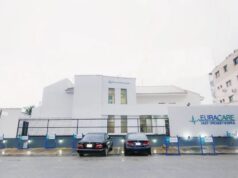As the global community marks International Cancer Day on Sunday, the Albinism Association of Nigeria (AAN) has called for solidarity and support for persons with albinism.
Mrs Bisi Bamishe , President, AAN, made the call in a statement to mark the 2024 International Cancer Day on Sunday.
Bamishe said that the 2024 theme “Close the Care Gap” resonated with the association’s goal .
According to her, AAN celebrates the incredible progress made in cancer prevention, diagnosis, and treatment, while acknowledging the stark inequities that still leave countless members of albinism community vulnerable.
She noted that in spite of the nation’s resilience and strength, cancer remained a leading cause of death and suffering.
She stressed that globally, cancer ranks as the primary cause of mortality, accounting for an approximate annual toll of 10 million lives.
“This astronomical figure emphasises the critical nature of international initiatives to combat the disease.
“In this breath, International Cancer Day 2024 serves as a sobering reminder of the teamwork needed to address this worldwide health issue.
“The distribution of the burden of cancer is not uniform. Developing and middle-income nations encounter substantial obstacles when it comes to obtaining critical cancer prevention, diagnosis, and treatment services.
“It is essential to address these disparities in order to attain health outcomes that are equitable,” Bamishe said.
According to the. president, cancer is a tougher challenge for persons with albinism.
She added that cancer kills quickly, if left untreated.
“A minimum of five individuals have been diagnosed with skin cancer in every state of the federation of Nigeria.
“Each month, we lose patients with this evil and painful illness. Cancer patients require treatment immediately.
“Early detection is essential for the effective treatment of cancer. Cure probabilities are significantly increased when cancer is detected and treated in its early stages.
“This year’s theme, `Close the Care Gap’, focuses on reducing inequalities in cancer prevention, diagnosis, treatment, and care.
“Persons with albinism, especially those residing in marginalised communities, encounter substantial obstacles in accessing high-quality healthcare.
” We are faced with restricted availability of screening and early detection initiatives despite the critical nature of early detection in ensuring successful treatment outcomes, numerous individuals are uninformed about or lack the necessary resources to participate in these vital examinations,” Bamishe said.




